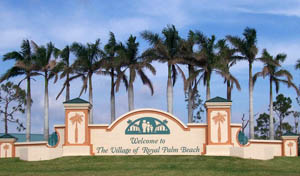At the March 16 meeting of the Royal Palm Beach Village Council, Mayor Fred Pinto noted that the Palm Beach Metropolitan Planning Organization is looking at new ways to collect roadway fees as alternatives to the current impact fees and concurrency fees.
Pinto, the village’s member on the MPO board, said he attended a meeting earlier that day where members discussed the results of a subcommittee that had been meeting for about a year to discuss alternatives to impact fees collected by the county.
“Their recommendation was to ask the MPO to make a resolution to request Palm Beach County to consider other alternatives to impact fees, in particular, to create something called a ‘mobility fee,’” Pinto said. “There was considerable discussion, very good discussion, actually, about the notion of what it means going forward with impact fees.”
Recent changes to state law have made it harder for local governments to collect enough impact fees to keep up with transportation needs. Previously, developers had to pay all impact fees required to make necessary road changes. Now, developers no longer have to pay the full freight on impact fees for roads required by their projects, but instead pay what is called their “proportional share.”
Pinto said county representatives sitting on the MPO and other members were not ready to move forward immediately, but agreed to send a letter to the Florida Attorney General’s Office asking what latitude the county has in using impact fee revenue for other than just laying asphalt and extending roads.
“There seems to be some difference of opinion what the definition really meant,” Pinto said.
The MPO also agreed to schedule a workshop to discuss mobility fees, impact fees, proportional share and concurrency in further detail.
“The thing that is important is cities that are not currently members of the MPO will be invited, as well as the public, to attend that workshop so that we can expand the input and discussion process,” Pinto said.
The date and time of the meeting has not yet been set.
MPO members also discussed whether municipalities should develop their own mobility fee process.
“This is something that the council has discussed, at least as part of the strategic planning process, and is something that is on our horizon to discuss,” Pinto said.
Village Manager Ray Liggins said mobility fees are on the strategic planning agenda, and the village needs to watch closely which way the county and some of the larger municipalities are going.
“The key thing is everybody used to have transportation impact fees,” Liggins said, explaining that transportation fees can be used only to pay for roadways and not bike paths, sidewalks or other forms of transportation.
“The ‘mobility fee’ idea probably entered into the picture a couple of years ago, and was written into state law,” he said. “What it does is allow you to spend those mobility fees on things other than widening roads.”
Liggins said the upcoming discussion of senior transportation issues might lend itself to a mobility fee.
He added that his staff is also updating the village’s impact fee policy, which will be presented to the council next month for review.
“We’re going to keep an eye on the other communities and probably be putting a request for proposals out at the end of the year,” he said.
Pinto noted that the City of West Palm Beach recently paid to have a study done of mobility and impact fees.
“West Palm Beach made comment on that today about the fact that they are moving forward and being very aggressive about this mobility fee concept,” he said.
Liggins said studies are going on in municipalities throughout the state, including Alachua County and a couple of cities in Seminole County, and Royal Palm Beach is collecting copies of those ordinances to use as possible models.
Vice Mayor Jeff Hmara added that Palm Beach Gardens is also developing a mobility fee policy.
“Now we have something more than just West Palm Beach,” Hmara said. “That’s something closer to us that might actually be helpful, so you put the two together and you’d probably have a good base there.”
Pinto added that March is Bike Month and the MPO is staging several events to promote bicycling and awareness of the numerous bike paths available throughout the county, including in Royal Palm Beach.
“One of the things that I’d like us to think about and commit to is next year when Bike Month comes around, Royal Palm Beach should have an event as part of that celebration. Perhaps a bicycle race around the village, or something like that,” he said.
Visit www.palmbeachmpo.org for more information about Bike Month.








